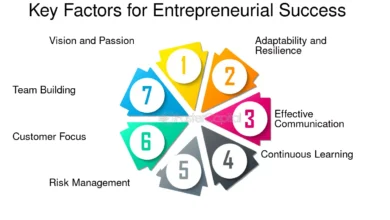Do Volunteer Firefighters Get Paid? The Truth Behind Their Service

Table of Contents
Introduction:
Do volunteer firefighters get paid? This is a common question people ask when they see firefighters rushing to help during emergencies. Many believe all firefighters get a salary, but that’s not true for volunteers.
Volunteer firefighters are everyday heroes who give their time to help their communities. Unlike career firefighters, they don’t get a regular paycheck. But do they get any money at all? Let’s explore how volunteer firefighters are rewarded for their service and why they do it.
Do Volunteer Firefighters Get Paid? Here’s What You Need to Know
Many people wonder, do volunteer firefighters get paid? The short answer is no, they do not receive a salary like career firefighters. But that does not mean they get nothing at all.
Volunteer firefighters work hard to help their communities. They respond to fires, accidents, and medical emergencies. Even though they are not paid a salary, they sometimes get small payments or other benefits.
Most volunteer firefighters have full-time jobs to support themselves. They give their free time to firefighting because they love helping others. Their work is important, even if it is unpaid.
The Difference Between Career and Volunteer Firefighters
There are two types of firefighters—career firefighters and volunteer firefighters. Both do the same job, but their pay and training are different.
Career firefighters are full-time workers. They go through long training programs and earn a salary. They also get benefits like health insurance and retirement plans.
Volunteer firefighters, on the other hand, work part-time and are not paid a regular wage. They still train and respond to emergencies, but they do it while managing other jobs.
Why Do People Become Volunteer Firefighters?
Many people become volunteer firefighters because they want to help their communities. They feel a strong sense of duty and love saving lives.
For some, it is a way to gain experience. They hope to become career firefighters in the future. Volunteering helps them learn important skills and build connections.
Others do it simply because they enjoy the challenge. Firefighting is exciting, and volunteers take pride in their work. Even without a salary, they find it rewarding.
How Are Volunteer Firefighters Compensated?
Volunteer firefighters do not get a salary, but they may receive other types of compensation. This depends on the fire department and local policies.
Some departments give volunteers small stipends. This is a fixed amount paid every month or year. Others pay a small fee per emergency call, which can be as low as $2 per call.
Fire departments may also cover some expenses. Volunteers might get money for gas, equipment, or training. Some areas offer tax breaks or retirement benefits for long-term service.
Do Volunteer Firefighters Get Any Benefits?

Even though they are unpaid, volunteer firefighters can receive several benefits. These benefits help make their work easier and more rewarding.
Some fire departments provide free training. Volunteers can take courses in firefighting, first aid, and rescue operations. These skills are useful in emergencies and everyday life.
Other benefits include discounts, pensions, and insurance. In some places, volunteers get life or disability insurance to protect them in case of injury.
Can Volunteer Firefighters Make Money in Other Ways?
Since they are not paid a salary, many volunteer firefighters look for extra income. Some take part-time jobs, while others do gig work.
One way volunteers earn money is through handyman jobs. Some companies connect firefighters with homeowners who need help with repairs, moving, or yard work.
Others use their firefighting skills for paid roles. They may work as emergency medical technicians (EMTs) or in fire safety training programs.
Is It Legal to Pay Volunteer Firefighters a Salary?
In the United States, paying volunteer firefighters a salary is illegal under the Fair Labor Standards Act (FLSA). If they get an hourly wage, they must be treated as employees.
Instead of a salary, fire departments use other forms of payment. They offer small stipends, per-call payments, or reimbursements to help with expenses.
These rules exist to protect both firefighters and fire departments. Without them, departments might not be able to afford volunteers at all.
How Much Do Volunteer Firefighters Get Paid Per Call?
The amount volunteers receive per call varies by location. Some fire departments pay nothing, while others offer small amounts.
In many areas, the pay per call is very low. It can range from $2 to $20, depending on the department’s budget. This money is usually meant to cover gas and equipment costs.
Even when they are paid per call, volunteer firefighters still earn much less than career firefighters. Most do not rely on this money as their main income.
Do Volunteer Firefighters Get Pensions or Insurance?
Some fire departments offer pensions and insurance to long-term volunteer firefighters. These benefits help support them after years of service.
Types of Benefits:
- Pensions: Some states provide small retirement payments for volunteers who serve for many years.
- Insurance: Fire departments may offer life or disability insurance to protect volunteers.
- Tax Breaks: Some volunteers qualify for tax deductions or credits.
The availability of these benefits depends on local policies. Not all volunteers receive them, but they are a helpful incentive.
Is Volunteer Firefighting a Good Step Toward a Career?

For many, volunteering is the first step to becoming a career firefighter. It provides experience and helps build skills needed for the job.
Why It Helps:
- Training: Volunteers learn fire safety, rescue techniques, and emergency response.
- Experience: Hands-on practice helps them prepare for full-time work.
- Networking: They meet professionals who can help them get hired in paid roles.
While it does not guarantee a job, volunteering makes the path to a firefighting career easier.
Challenges Volunteer Firefighters Face Without a Salary
Not getting paid brings challenges. Volunteers must balance firefighting with other jobs and personal life.
Many struggle with costs. Firefighters often pay for their own gear, gas, and training. Without a salary, these expenses can add up.
Time is another issue. Volunteers spend hours training and responding to calls. This can be difficult for those with full-time jobs or families.
How to Support Your Local Volunteer Firefighters
Communities can help their volunteer firefighters in many ways. Support makes their work easier and more rewarding.
Ways to Help:
- Donate: Fire departments often rely on donations for equipment and training.
- Attend Events: Fundraisers help raise money for volunteer fire services.
- Spread Awareness: Let others know about the importance of volunteer firefighters.
Even small acts of support make a big difference. Volunteers work hard to keep communities safe, and they deserve appreciation.
Do Volunteer Firefighters Get Paid More in Some States?
Pay for volunteer firefighters varies by state. Some states provide more financial support than others.
Rural areas often have fewer funds, so volunteers may not receive any pay at all. In larger cities, fire departments may offer small stipends or benefits.
The best way to find out about payments in a specific state is to check with local fire departments. Each area has different policies and budgets.
Can Volunteer Firefighters Apply for Financial Assistance?
Some organizations offer financial help to volunteer firefighters. These programs help cover costs like training, equipment, and medical bills.
Types of Assistance:
- Grants: Some non-profits provide grants for firefighting expenses.
- Scholarships: Volunteers looking to become career firefighters can apply for scholarships.
- Emergency Funds: Some states offer financial aid for injured or struggling firefighters.
Volunteers should check with local and national firefighter organizations for available assistance.
The Future of Volunteer Firefighting – Will They Ever Get Paid?

The future of volunteer firefighting is uncertain. As costs rise, many ask whether volunteers should receive better pay.
Some communities are pushing for more financial support. Others fear that paying volunteers could be too expensive and lead to fewer resources.
For now, volunteer firefighters continue to serve for little or no pay. But as the demand grows, changes could happen in the future.
Conclusion
Volunteer firefighters are real heroes who help their communities without getting a full salary. Even though they don’t earn a paycheck like career firefighters, some get small payments, benefits, or support for their service. They work hard, train regularly, and respond to emergencies while balancing other jobs and personal lives.
Even without big money, many people still choose to be volunteer firefighters because they love helping others. Their work is important, and communities should support them in any way they can. Whether through donations, attending fundraisers, or simply saying thank you, every bit of support makes a difference!
FAQs
Q: Do volunteer firefighters get paid a salary?
A: No, volunteer firefighters do not get a regular salary. Some may receive small payments, but they are not full-time employees.
Q: How much do volunteer firefighters get paid per call?
A: It depends on the fire department. Some pay nothing, while others may give a small amount, like $2 to $20 per call.
Q: Do volunteer firefighters get any benefits?
A: Yes, some fire departments offer free training, pensions, tax breaks, or insurance for volunteers. But not all departments provide these benefits.
Q: Can volunteer firefighters become career firefighters?
A: Yes! Many people start as volunteer firefighters to gain experience and later apply for full-time firefighting jobs.
Q: How can I support volunteer firefighters?
A: You can donate to your local fire department, attend fundraisers, or simply thank them for their hard work. Every little bit helps!




